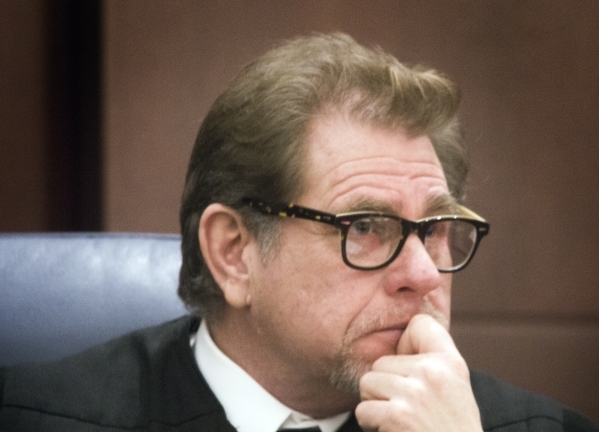High court backs state engineer’s water rights decision
CARSON CITY — The state engineer properly imposed incremental development of water rights in a rural Nevada basin granted to Southern Nevada Water Authority, the Nevada Supreme Court ruled Thursday.
In a unanimous opinion on a limited technical point, justices denied a petition sought by the Cleveland Ranch owned by the Corporation of the Presiding Bishop of the Church of Jesus Christ of Latter-day Saints.
Lawyers for the church had argued State Engineer Jason King wrongly applied "staged development" retroactively when he approved the water authority's application for 61,127 acre-feet of water annually from Spring Valley. The church claimed the ability to allow gradual, increased pumping over a number of years wasn't added to state law until 2007 and could not be applied retroactively to permit applications filed in 1989.
But the high court discounted the argument, noting it ordered the whole permitting process to start over in 2010 and King's approval of the water rights came in 2012.
"The material date here is the date of an application's approval, not filing, and these applications were approved five years after the statute took effect," the opinion authored by Chief Justice Ron Parraguirre said.
In a statement, the water authority said it was pleased with the ruling.
"Staged development allows the state engineer to confirm his conclusion that, as pumping increases over time to the approved amount, the sorts of environmental harms and water use conflicts hypothesized by project opponents will not occur," the agency said.
Las Vegas water officials for decades have been planning a pipeline to import groundwater from four rural areas near the Utah line to Southern Nevada, which gets 90 percent of its drinking water from the over-tapped and drought-stricken Colorado River.
In Spring Valley, King allowed initial pumping of up to 38,000 acre-feet per year for at least eight years so the effects of pumping could be monitored. Pumping could be increased to up to 50,000 acre-feet for a number of years after that while more monitoring is conducted before a determination is made on the full allotment.
But the court's ruling Thursday doesn't mean the water authority will begin pumping groundwater from Spring Valley or three other rural basins near the Utah line anytime soon.
In May 2015, the Supreme Court declined to consider challenges to a 2013 ruling in by Senior District Judge Robert Estes in Ely that essentially stripped the authority of the rural water rights.
Estes ordered King to recalculate how much groundwater the water authority should be allowed to pump from Spring, Cave, Dry Lake and Delamar valleys to ensure those valleys don't go dry and the water rights of other users are protected.
He also directed the state engineer's office to develop a detailed monitoring and mitigation plan that clearly defines when corrective action is needed if large-scale groundwater pumping causes damage.
Though the pipeline project was once touted as an urgent necessity to provide adequate water supplies for the fast-growing Las Vegas region, water authority officials have since backed off that assessment, calling it instead a long-term planning option for the future.
Contact Sandra Chereb at schereb@reviewjournal.com or 775-687-3901. Find her on Twitter: @SandraChereb

















